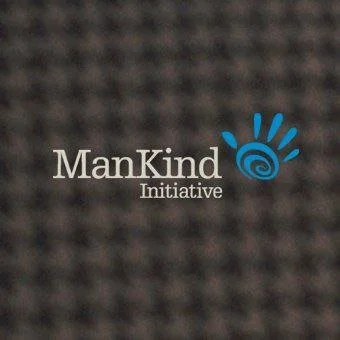ManKind Initiative
Support for Male Victims of Domestic Abuse
When we think of domestic abuse, the conversation often centres on women, given the scale of violence they face. But men can and do experience abuse too, often in silence. Shame, stigma, and the fear of not being believed keep many from reaching out. The ManKind Initiative exists to change that.
Founded in 2001, ManKind Initiative was the first charity in the UK dedicated to supporting male victims of domestic abuse. For over two decades, it has been a confidential and compassionate service for men across England, Wales, Scotland, and Northern Ireland, as well as for the friends, families, and professionals who support them.
Why this work matters
Domestic abuse against men is less visible but no less real. Abuse can take many forms - physical violence, threats, intimidation, control, bullying, insults, or having objects thrown. It can happen in marriages, heterosexual partnerships, and same-sex relationships.
The silence around male victims often comes from social expectations. Many men feel they won’t be taken seriously, or that admitting abuse undermines their identity. Others worry about being judged, laughed at, or even blamed. ManKind’s services challenge that silence. They start with a clear message: if you are a man experiencing domestic abuse, you are not alone, and you deserve support.
The Helpline
At the heart of ManKind Initiative’s work is its confidential helpline, open to male victims and those around them:
Freephone: 0808 800 1170 (Monday–Friday, 10am–4pm, excluding bank holidays; does not appear on phone bills)
Alternative: 01823 334 244 (for those with inclusive minutes)
This service is not only for men themselves, but also for friends, family members, neighbours, colleagues, and employers who are worried about someone they know. The helpline provides information, emotional support, and signposting to local services.
When you call, you can expect to be listened to without judgement. Advisors will discuss your situation, explain your options, and direct you to services available near you - including those listed in the charity’s own national directory, The Oak Book.
Who uses the service?
ManKind Initiative hears from men of all ages and backgrounds:
Men in their 20s, unsure how to escape controlling partners.
Retired men in their 70s and 80s who have lived in silence for decades.
Professionals like doctors, bankers, and teachers.
Key workers like builders, drivers, and shop staff.
Abuse does not discriminate, and ManKind’s work makes this clear.
The helpline also takes calls from professionals - local authorities, police forces, charities, and frontline workers - who need guidance on how best to support male victims. This creates a ripple effect, ensuring survivors get better responses wherever they turn.
Beyond the helpline
ManKind Initiative does more than provide immediate support. The charity also campaigns for wider recognition of male victims within policy and society. It produces research, resources, and training to help professionals respond with empathy and understanding.
By documenting the experiences of men, the charity confronts harmful stereotypes and pushes for services that meet the needs of all survivors. Its message is simple but powerful: abuse is abuse, regardless of the victim’s gender.
The human impact
The importance of having a place to turn to cannot be overstated. For a man who has lived with years of abuse, the helpline can be the first time he has ever said the words out loud. For a friend or colleague, it can be the reassurance that they are doing the right thing by seeking help.
Knowing that the call is confidential and won’t appear on a phone bill can make the difference between silence and reaching out. That small detail reflects something bigger: ManKind Initiative understands the fears that keep victims hidden and works to remove them.
Why ManKind matters
Domestic abuse thrives in silence. By offering a safe and confidential space for men to speak, ManKind Initiative chips away at that silence every day. It tells male victims - whether young or old, in cities or rural areas, in same-sex or heterosexual relationships - that their pain is real, their safety matters, and support is possible.
The work also matters because it challenges society to expand its understanding of domestic abuse. Recognising male victims does not diminish women’s experiences; it strengthens the wider movement against abuse by insisting that no one should be left behind.
At its heart, ManKind Initiative carries a simple but life-changing message: if you are a man experiencing domestic abuse, you deserve to be heard, believed, and supported.


